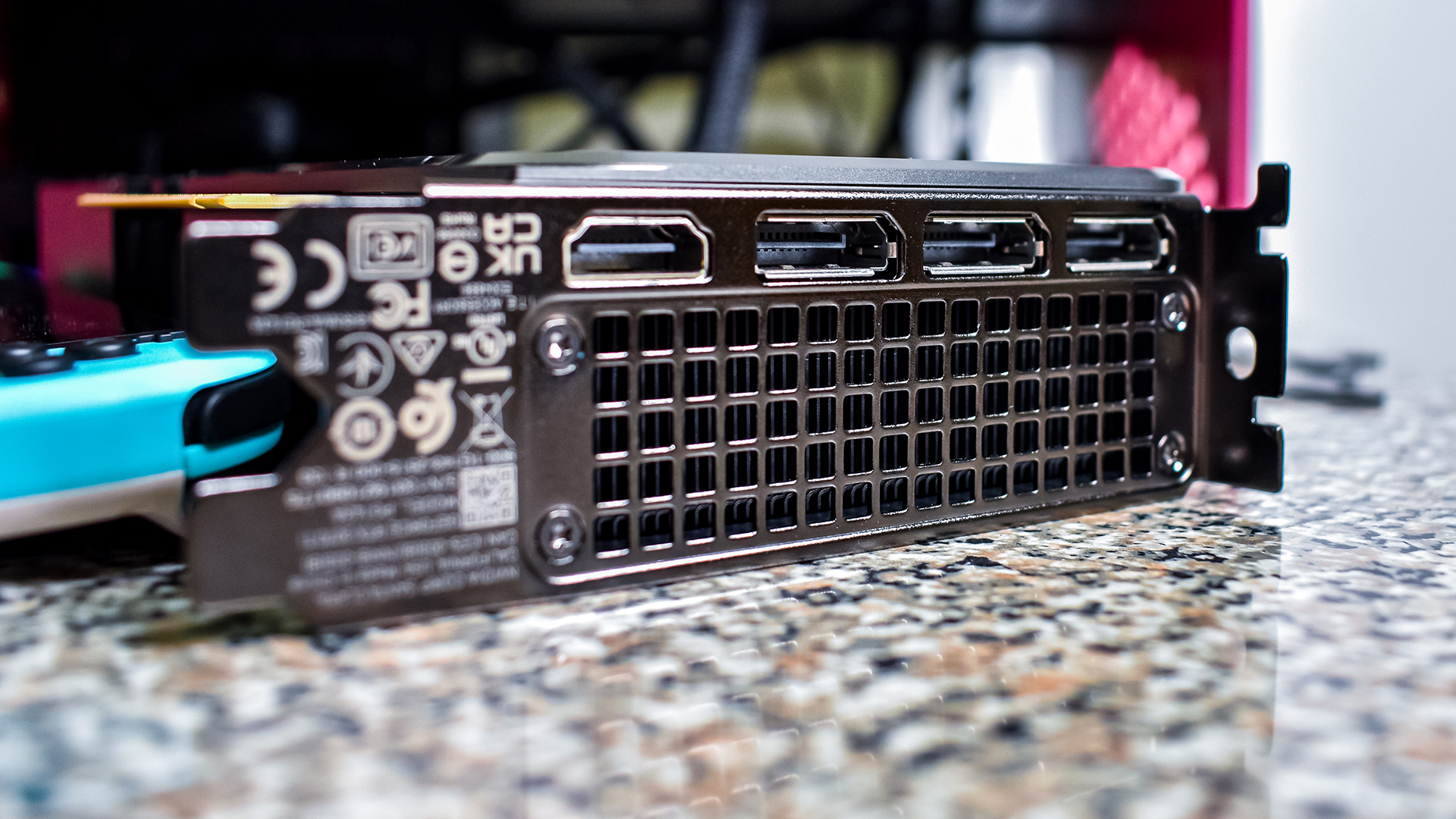New Nvidia RTX 4090 GPU rumor points to another unbelievable power draw
Yet another rumor claims a high TGP – in this case 600W

Nvidia’s RTX 4090, or whatever the next-gen flagship ends up being called, is going to be a seriously power-hungry graphics card, yet another rumor is claiming.
Yes, we’ve been hearing this for some time now, but the latest from well-known leaker Kopite7kimi is that one of their sources is saying that the RTX 4090 could run with a TGP of 600W (that’s Total Graphics Power, meaning the maximum power delivered to the card).
Someone told me the xx90 with 600W TGP has been confirmed. I think it's too early to talk about it.March 12, 2022
That’s another staggering figure – or potential figure, we should clarify – to add to a long list of eyebrow-raising wattage ratings that have been theorized for a good long while now.
Treat this very much as speculation, of course, as even though the hardware leaker mentions this being ‘confirmed’, clearly this is still just a rumor as Kopite7kimi adds that they believe it’s “too early to talk about” – meaning we shouldn’t be jumping to conclusions yet.
Analysis: Massive performance boost, but with major power caveats?
In fact, in the past we’ve heard some even more worrying predictions about the wattage that Nvidia’s next-gen flagship might consume. Like 800W or 850W – which seems a truly ridiculous TGP to us, and we’re just not buying that Team Green would consider going that far, even with the top-end super-pricey graphics card for the ‘Lovelace’ generation (presumably RTX 4000 as mentioned).
Earlier speculation floated the idea of a 450W or 500W maximum power draw for the RTX 4090, or maybe even a bit more, so throw in this latest 600W prediction, and whichever way you dice things, it seems that the Lovelace flagship is more than likely going to be pretty heavy going on your PC’s power supply. (Remember, the RTX 3090 has a TGP of 350W, to put things in perspective with Nvidia’s current range.)
After all, there have been strong rumors that Nvidia is shooting for a big performance increase with the 4090, and a much beefier flagship in that respect, and so power requirements rising somewhat steeply certainly doesn’t seem to be out of the question in light of that goal.
Get daily insight, inspiration and deals in your inbox
Sign up for breaking news, reviews, opinion, top tech deals, and more.
There are problems with such a majorly power-chugging GPU, though. What kind of PSU will you need to run this? 1,000W, or even 1,200W, say? And for that matter, what sort of cooler will be needed? How big will the card be as a result? The mind boggles regarding these kinds of issues if the upper limits the rumor mill is mulling are anywhere near the truth.
You might point out that the RTX 4090 is going to be a stupidly powerful and likely eye-wateringly expensive graphics card that the average consumer isn’t going anywhere near, anyway, and you would of course be absolutely right. This is not a card intended for the general computing public, just like the 3090 wasn’t.
But the point is that power requirements would presumably be ramped up in-line somewhat when it comes to the RTX 4080 – rumors have suggested this, too (such as 450W for the 4080) – and maybe even lesser graphics cards, further down the range, that more mainstream consumers will want to buy.
It’s not unforeseeable, then, that those consumers could run into some complications in terms of their PSU not being quite good enough (and upgrading a power supply doesn’t just make buying a new GPU more expensive, it’s quite a headache too). And that’s before we even begin to consider thorny problems like the spiking energy costs in the contemporary world, and issues around needing to be more eco-friendly with resource usage.
So, while we can’t get carried away with this early speculation, given the weight of rumors indicating that Nvidia may be going heavy on the power usage front, we can’t help but be a bit concerned about all the possible ramifications as outlined.
Via VideoCardz
Darren is a freelancer writing news and features for TechRadar (and occasionally T3) across a broad range of computing topics including CPUs, GPUs, various other hardware, VPNs, antivirus and more. He has written about tech for the best part of three decades, and writes books in his spare time (his debut novel - 'I Know What You Did Last Supper' - was published by Hachette UK in 2013).